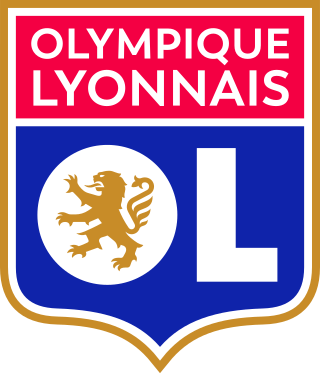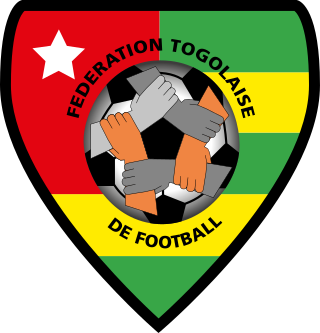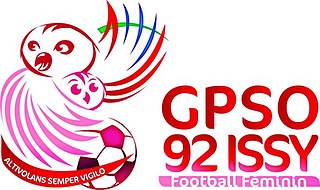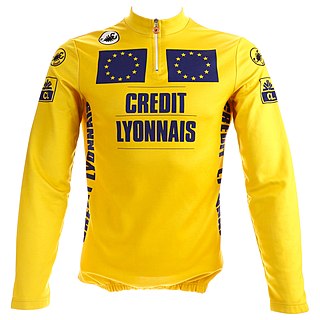Shōnen manga is an editorial category of Japanese comics targeting an audience of adolescent boys and young men. It is, along with shōjo manga, seinen manga, and josei manga, one of the primary demographic categories of manga and, by extension, of Japanese anime. Shōnen manga is traditionally published in dedicated manga magazines that often almost exclusively target the shōnen demographic group.

Tennis is a racket sport that is played either individually against a single opponent (singles) or between two teams of two players each (doubles). Each player uses a tennis racket strung with a cord to strike a hollow rubber ball covered with felt over or around a net and into the opponent's court. The object is to manoeuvre the ball in such a way that the opponent is not able to play a valid return. If a player is unable to return the ball successfully, the opponent scores a point.

Billie Jean King, also known as BJK, is an American former world No. 1 tennis player. King won 39 Grand Slam titles: 12 in singles, 16 in women's doubles, and 11 in mixed doubles. King was a member of the victorious United States team in seven Federation Cups and nine Wightman Cups. For three years, she was the U.S. captain in the Federation Cup.

Women and girls have participated in sports, physical fitness, and exercise throughout history. However, the extent of their involvement has varied depending on factors such as country, time, geographical location, and level of economic development. The modern era of organized sports, with structured competitions and formalized activities, did not fully emerge for either women or men until the late industrial age. This shift marked a significant change in how sports were structured and practiced, eventually leading to more inclusive opportunities for female participation.

Rosemary "Rosie" Casals is an American former professional tennis player. During a tennis career that spanned more than two decades, she won more than 90 titles and was crucial to many of the changes in women's tennis during the 1960s and 1970s.

Women's professional sports are a relatively new phenomenon, having largely emerged within the latter part of the 20th century. Unlike amateur female athletes, professional female athletes are able to acquire an income which allows them to earn a living without requiring another source of income. In international terms, most top female athletes are not paid and work full-time or part-time jobs in addition to their training, practice, and competition schedules. Professional organizations for women in sport are most common in developed countries where there are investors available to buy teams and businesses which can afford to sponsor them in exchange for publicity and the opportunity to promote a variety of their products. Very few governments support professional sports, male or female. Today there are a number of professional women's sport leagues in the United States and Canada.
Sport in France plays an important role in French society, which is reflected in its popularity among the French people and the nation's strong sporting history. Various types of sports are played and followed in France, notably cycling, fencing, football, and handball, which has earned France eight victories in world championships and five Olympic medals. France is also the four-time European champion of handball.

Olympique Lyonnais Féminin is a French women's professional football club based in Lyon. The club has been the female section of Olympique Lyonnais since 2004. It is the most successful club in the history of the Première Ligue, with seventeen league titles as Olympique Lyonnais and four league titles as FC Lyon before the acquisition.
World number 1 ranked female tennis players is a year-by-year listing of the female tennis players who were ranked as world No. 1 by various contemporary and modern sources.
The Paris Saint-Germain Academy is the youth system of both Paris Saint-Germain's male and female teams. Managed by the Association Paris Saint-Germain, the men's section of the academy was officially established in 1975, but has been developing young talents since the club's foundation in 1970. PSG began developing youth players for the women's section in 2012, with the academy officially opening in 2023. Campus PSG in Poissy is currently the training facility and home ground of both sections.

The portrayal of gender in video games, as in other media, is a subject of research in gender studies and is discussed in the context of sexism in video gaming. Although women make up about half of video game players, they are significantly underrepresented as characters in mainstream games, despite the prominence of iconic heroines such as Samus Aran or Lara Croft. Women in games often reflect traditional gender roles, sexual objectification, or stereotypes such as the "damsel in distress". Male characters are frequently depicted as big and muscular, and LGBT characters have been slow to appear due to the cis-heteronormativity of the medium.

The Burundi women's national football team, nicknamed the Swallows, represents Burundi in women's international football competitions. The team has competed since 2016 in matches recognised by FIFA, the sport's international governing body. A senior national team has been continually inactive, but an under-20 team has played in numerous matches. Further development of football in the country faces challenges found across Africa, including inequality and limited access to education for women. A women's football programme did not exist in Burundi until 2000, and only 455 players had registered for participation on the national level by 2006.

The Togo women's national football team represents Togo in international women's football since 2006. It is governed by the Togolese Football Federation (FTF), the governing body of football in Togo. The team has played five FIFA-recognised matches, in 2006 and 2007, before reappearing in the 2018 WAFU Women's Cup, set in Abidjan, Ivory Coast. Their manager since January 2018 is Kaï Tomety. Togo's home stadium is the Stade de Kégué, located in Lomé.
Stade de Reims Féminines or Stade de Reims Women is a French women's football club from Reims established in 1968 as FCF Reims(Football Club Féminin de Reims). In 1970 it became Stade de Reims's women's team, and four years later it was one of the twelve founding teams of the Division 1 Féminine, known known as the Première Ligue. They were the first French team to sign a player from Ireland in the contemporary era of women's football.
The Pole France feminin de Football, formally the Centre national de formation et d'entraînement de Clairefontaine is a French training center specializing in women's football, opened in 1998 and administered by the French Football Federation.
The Haiti women's national under-20 football team represents Haiti in international football for women at this age level and is controlled by the Fédération Haïtienne de Football (FHF).

The history of sports in the United States reveals that American football, baseball, softball, and indoor soccer evolved from older British sports—rugby football, British baseball, rounders, and association football, respectively. Over time, these sports diverged significantly from their European origins, developing into distinctly American versions. For example, over time, American football developed its own rules and style, becoming distinctly different from its British predecessor and uniquely American. While baseball's origins can be traced to British bat-and-ball games such as British baseball, its development in the United States also incorporated elements from various other bat-and-ball games. Today, baseball enjoys widespread international popularity, especially in East Asia and Latin America.

The Fédération des sociétés féminines sportives de France was a French organisation set up to promote women's sport. The FSFSF was responsible for the French women's football championship from 1919 until 1932, and organised the Women's Olympiad, an alternative to the Olympic Games, between 1921 and 1923.

Grand Paris Seine Ouest 92 Issy are a French women's football team based in Issy-les-Moulineaux. The club currently compete in Division 2 Féminine, the Second Division of women's football in France. The team was founded in 1997 as EuroPeru, and was known as FF Issy from 2001 until 2020.

Various professional women's cycle stage races across France have been held as an equivalent to the Tour de France for women, with the first of these races staged as a one off in 1955. From 1984, a women's Tour de France was staged consistently, although the name of the event changed several times - such as Tour de France Féminin, Tour of the EEC Women, Tour Cycliste Féminin and Grande Boucle Féminine Internationale.













